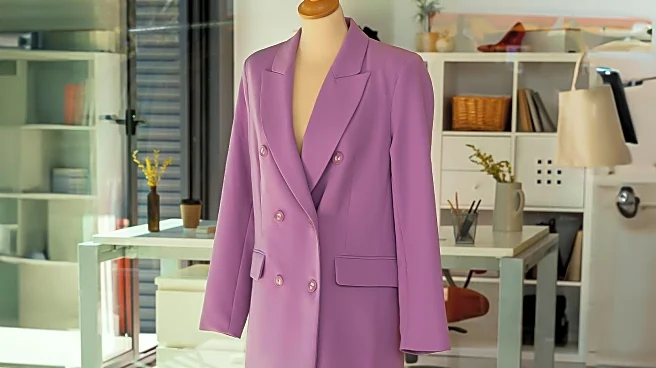What's Happening?
The Istituto Europeo di Design (IED) is enhancing its educational offerings to prepare students for the evolving fashion industry. With campuses across Italy, Spain, and Brazil, IED is introducing new master's programs in fashion trend forecasting, fashion curation, and fashion photography, starting February 2026. These programs aim to equip students with skills to navigate the industry's shifting boundaries and address challenges such as sustainability and overconsumption. IED is also hosting the 'IED Tomorrow' series, featuring discussions with industry leaders on topics like AI and retro-futurism, providing insights into the future of fashion.
Why It's Important?
IED's initiatives reflect the growing need for educational institutions to adapt to industry changes and prepare students for future challenges. By focusing on sustainability and emerging technologies, IED is positioning its graduates to lead in a rapidly evolving fashion landscape. This approach not only enhances the institution's reputation but also contributes to shaping the industry's future by fostering a new generation of creative leaders. The emphasis on interdisciplinary learning and collaboration may inspire other schools to adopt similar strategies, promoting innovation and adaptability in education.
What's Next?
As IED launches its new programs, it will likely continue to refine its curriculum and expand its partnerships with industry leaders. The 'IED Tomorrow' series will provide ongoing opportunities for students to engage with thought leaders and gain insights into emerging trends. The success of these initiatives could lead to further expansions and collaborations, potentially influencing other educational institutions to adopt similar approaches to prepare students for the future.
Beyond the Headlines
IED's focus on sustainability and interdisciplinary learning highlights the importance of addressing global challenges through education. By encouraging students to think critically and creatively, IED is fostering a culture of innovation that extends beyond the fashion industry. This approach may contribute to broader societal shifts towards more sustainable and ethical practices, influencing how future generations approach consumption and production.









